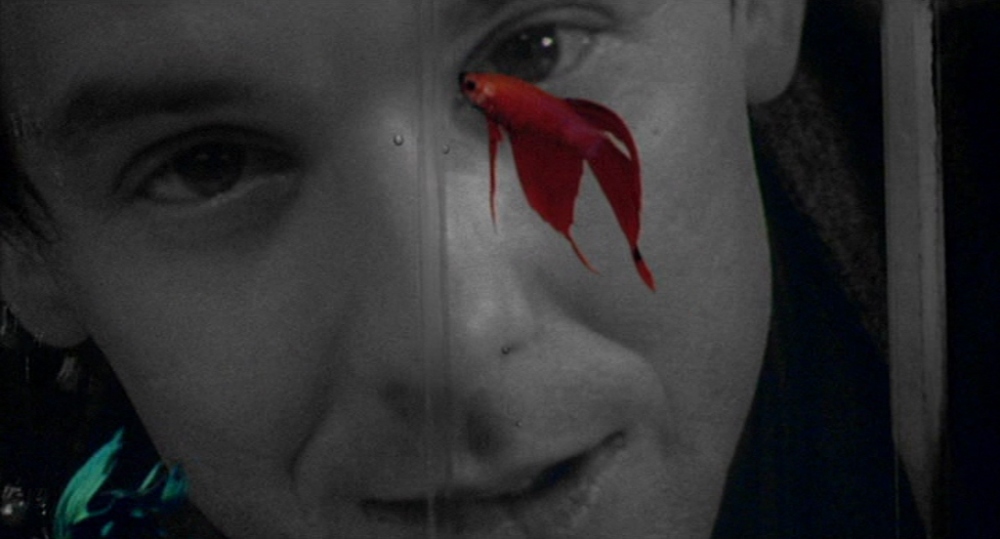Warning: Spoilers for the film below
In 1983 director Francis Ford Coppola released two films based on the work of young adult novelist S.E. Hinton. These films were The Outsiders- released in March of that year- and Rumble Fish- released seven months later in October. The films were shot back-to-back in the same location and Coppola even used several of the same actors in both films, most notably Matt Dillon and Diane Lane. Dillon had a supporting role in The Outsiders and became the lead in Rumble Fish
When viewing Rumble Fish I gather Coppola didn't want to repeat himself and make The Outsiders again. The Outsiders is mostly straightforward in regards to its style but in Rumble Fish Coppola is experimenting with cinematic form and meshes the story's subject matter with a different ambience than what was expected from a 80s teen film. It's atmosphere is more film-noir than teenage coming of age drama. Others have also noted the influence of German Expressionism and the films of Orson Welles. This film divides me. I don't think it works as drama; it's narrative isn't satisfying- several plot and story strands do feel underdeveloped and without strong payoffs- but it's worth viewing as a turning point for Coppola; this film points forward toward his later 21st century work.
Rusty James (Dillon) is told he has to fight Biff Wilcox, the leader of a rival gang. Rusty James' brother, the Motorcycle Boy (Mickey Rourke) prior, had instigated a truce between the gangs just prior to his leaving without explanation; but Rusty James goes to fight Wilcox that night anyway. The Motorcycle Boy shows up and Rusty James is wounded by Wilcox stabbing him with a shard of glass. The Motorcycle Boy ends the fight and takes Rusty James home to tend his wound.
The Motorcycle Boy is the most captivating and seductive character in the film, largely due to his mysterious nature. There's a James Dean quality to Rourke's performance, and it's no wonder Rourke was pegged as the next Brando/Pacino/De Niro. I get the impression that the Motorcycle Boy that Rusty James looks up to and wishes to emulate is the not the same man we see throughout the film. The Motorcycle Boy has matured and isn't interested in being in a gang or engaging in any wars. However, Officer Paterson (William Smith) still hates the Motorcycle Boy due to the kids idolozing him. The Motorcycle Boy is killed by Paterson while attempting the free the titular rumble fish from a pet store. It's only through the Motorcycle Boy's death that Rusty James can be free to his own man.
Rusty James' relationship with Patty (Diane Lane) falls apart when Rusty James cheats on her with another girl. I wish Patty had more of a inner life but Lane does give Patty an angelic quality. She's the embodiment of every teenage boy's fantasy, which is visualized in Rusty James' day dream sequences where he sees her in lingerie on top of a classroom bookcase and at work.
For me, Stephen H. Burum's cinematography (this was Coppola's first film in black and white) invokes the 1950s, even while the film is set later in time. By providing the film the aura of a period piece rather than a contemporary drama, there's an almost nostalgic nature to the events, as if we're seeing them from the perspective of Rusty James looking back at this time in his life.
Rumble Fish is more of an impressionistic fever dream than a involving emotional experience. Still, as I mentioned before, the film is worth viewing to see what would personify Coppola's later career work; and as a piece of visual art, it's gorgeous.


